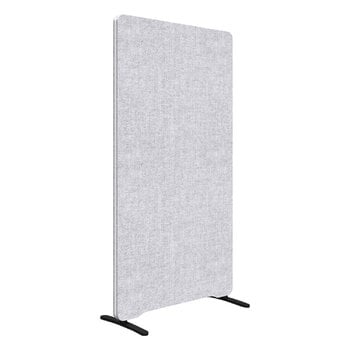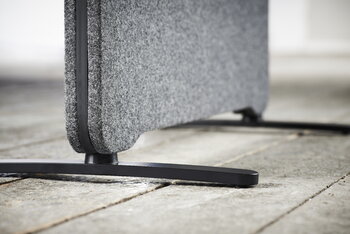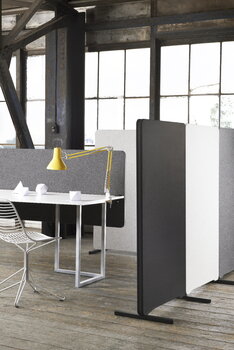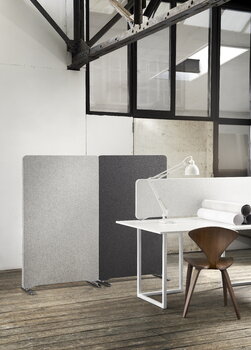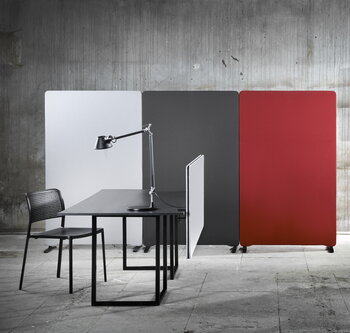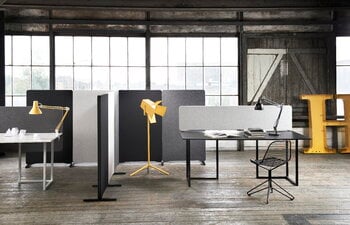Lintex’s Edge floor screen is an elegant sound-absorbing acoustic screen for office and home use. The free-standing Edge floor screen features a solid wood frame with an upholstered acoustic panel made of recycled polyester, which absorbs sound effectively, while the edging strip adds visual contrast to the design. The built-in magnets on the upper edge of the Edge floor screen allow you to easily connect several panels to each other.
Created by the design studio Halleroed, the acoustic screens of the Edge series are available in several sizes, models and colours. You can combine different models together to create a unique acoustic solution customised to your needs, enhancing both the acoustic and aesthetic environment in your workspace.
